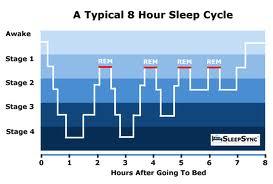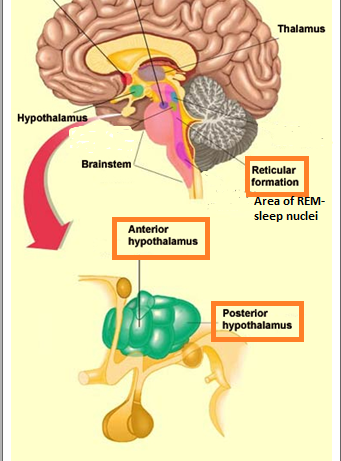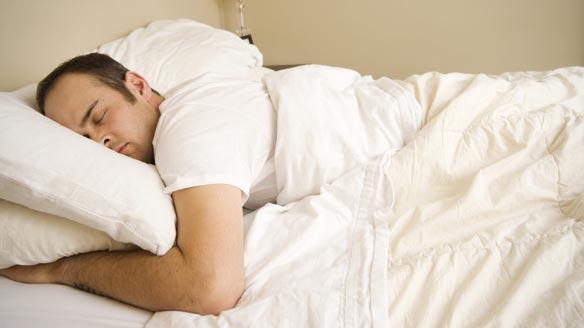THE IMPORTANCE OF SLEEP
Sleep has a large impact on our overall quality of life. It affects how we look, feel and perform each day and both quality and quantity of sleep are important for our daily functioning. Most adults require at least 8.5 hours of sleep each night in order to repair muscles, consolidate memory and release hormones to regulate growth and appetite(1). Lack of sleep can lead to poor health, accidents, impaired job performance and poor relationship health. It is not normal to feel sleepy during the day, to have problems getting to sleep at night or to wake up feeling tired and unrefreshed. Even a minimal amount of sleep loss has been shown to affect mood, energy, efficiency and ability to handle stress(2).
THE SLEEP CYCLE
Non-REM Sleep (75% of the night)
Stage 1 - between being awake and falling asleep (light sleep)
Stage 2 - onset of sleep, unaware of surroundings, breathing and heart rate regular, body temperature drops
Stage 3 & 4 - deepest sleep, blood pressure drops, breathing slows, muscles relax, tissue growth and repair occurs, energy restored, hormones released
REM Sleep (25% of the night)
Occurs after approximately 90 minutes of sleep and reoccurs at 90 minute intervals throughout the night. The length of REM stage gets longer throughout the night. This is the stage that provides energy to the brain and body for daytime functioning. The brain is active during this stage which explains why dreams occur at this time. The eyes move quickly back and forth, giving this stage it's name (Rapid Eye Movement). The body is immobilized as muscles become inactive(3).

Four Areas of the Brain Involved in Sleep
- Posterior and Anterior Hypothalamus
It was discovered that individuals who had troubles with excessive sleep had damage to their posterior hypothalamus as well as to adjacent parts of the midbrain. People who had problems sleeping on the other hand, had damaged their anterior hypothalamus and also adjacent parts of the basal forebrain. Therefore, the posterior hypothalamus is thought to be responsible for wakefulness, and the anterior hypothalamus promotes sleep. - Reticular Activating System
This part of the brain is located within the reticular formation of the brain stem and is responsible for wakefulness (arousal and sleep-wake transitions). - Reticular REM-Sleep Nuclei
The last area of the brain involved in sleep is also located within the reticular formation. There are a variety of nuclei within this area that control each major indices of REM sleep. For example, there is an area for reducing core muscle tone and another for rapid eye movement(4).








